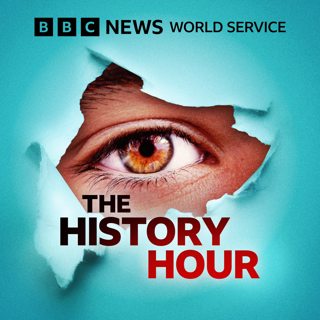
China's breakthrough malaria cure
How an ancient Chinese remedy provided a 1970s breakthrough in the fight against malaria; the bombing of Dresden in the Second World War that inspired Kurt Vonnegut's anti-war novel Slaughterhouse Five; the fall of Singapore; plus the town that America built in Afghanistan's south-western desert, and 'was Lenin a mushroom' - a satirical re-writing of Soviet history.Photo: Professor Lang Linfu (Family archives)
16 Mar 201950min

I was abused by a President
How allegations of child abuse engulfed Nicaraguan President Daniel Ortega, the campaign to return the Elgin marbles to Greece, Britain's first black headteacher, the origins of the Barbie doll and how Baroness Warsi made history.Photo: Zoilamerica Narváez announces in a press conference that she is filing a law suit against her stepfather Daniel Ortega, March 1998 (RODRIGO ARANGUA/AFP/Getty Images):
9 Mar 201950min

Venezuela's oil bonanza
When Venezuela was rich; surviving a mid-air airline disaster; Japan's Red Army militants of the 1970s, the origin of the swine flu epidemic and Iceland's Beer Day. Photo: Seidel/United Archives/UIG via Getty Images
2 Mar 201950min

The curse of Agent Orange
Millions left dead or deformed because of chemicals used in the Vietnam war, UK cigarette smoking warnings ignored, remains of the Nazi 'Angel of Death' discovered in Brazil, the Columbia Shuttle disaster which led to huge questions about American space safety and the unrest featured in the Oscar-nominated film, Roma, where Mexican students were killed by government-trained paramilitary troops.Photo: Child suffering from spinal deformity in rehabilitation centre in Saigon.
23 Feb 201950min

Iceland jails its bankers
Why Iceland jailed 40 bankers after the 2008 financial crisis, how the Maastricht Treaty gave birth to the EU, plus America's first female airline pilots, Cameroon's historic referendum and homeless, drunk and yet a genius in the USSR.(Photo: Protesters on the streets of Reykjavik demand answers from the government and the banks about the country's financial crisis, Nov. 2008. (Halldor Kolbeins/AFP/Getty Images)
16 Feb 201950min

The last days of Hitler
Hitler's secretary on the last days in the bunker; a CIA operative on the killing of Che Guevara, remembering the US invasion of Iraq, a child of the Soweto Uprising and the tricky task of bringing Disneyland to France. Photo: Getty Images
9 Feb 201950min

The Iranian Revolution
In February 1979, Ayatollah Khomeini returned from exile to Iran in the defining moment of a revolution that would change his country and the whole Middle East. In a special edition of the programme, Rebecca Kesby hears eye-witness accounts from the protestors who brought down the Shah, one of the Ayatollah's aides and an American embassy official taken hostage by Khomeini supporters. She also talks to the BBC Persian Service's special correspondent, Kasra Naji.PHOTO: Ayatollah Khomeini returning to Iran (Gabriel Duval, AFP/Getty Images.)
2 Feb 201949min

Vatican II: Reforming the Catholic Church
In January 1959 Pope John XXIII announced a council of all the world's Catholic bishops and cardinals in Rome. It led to sweeping reforms. Plus Carmen Callil recalls setting up Virago, the most successful feminist publishing house to date; India gives birth to the call centres and remembering the Carry-on films.(Photo; Pope John XXIII at the Vatican. Credit: Getty Images)
26 Jan 201941min






















